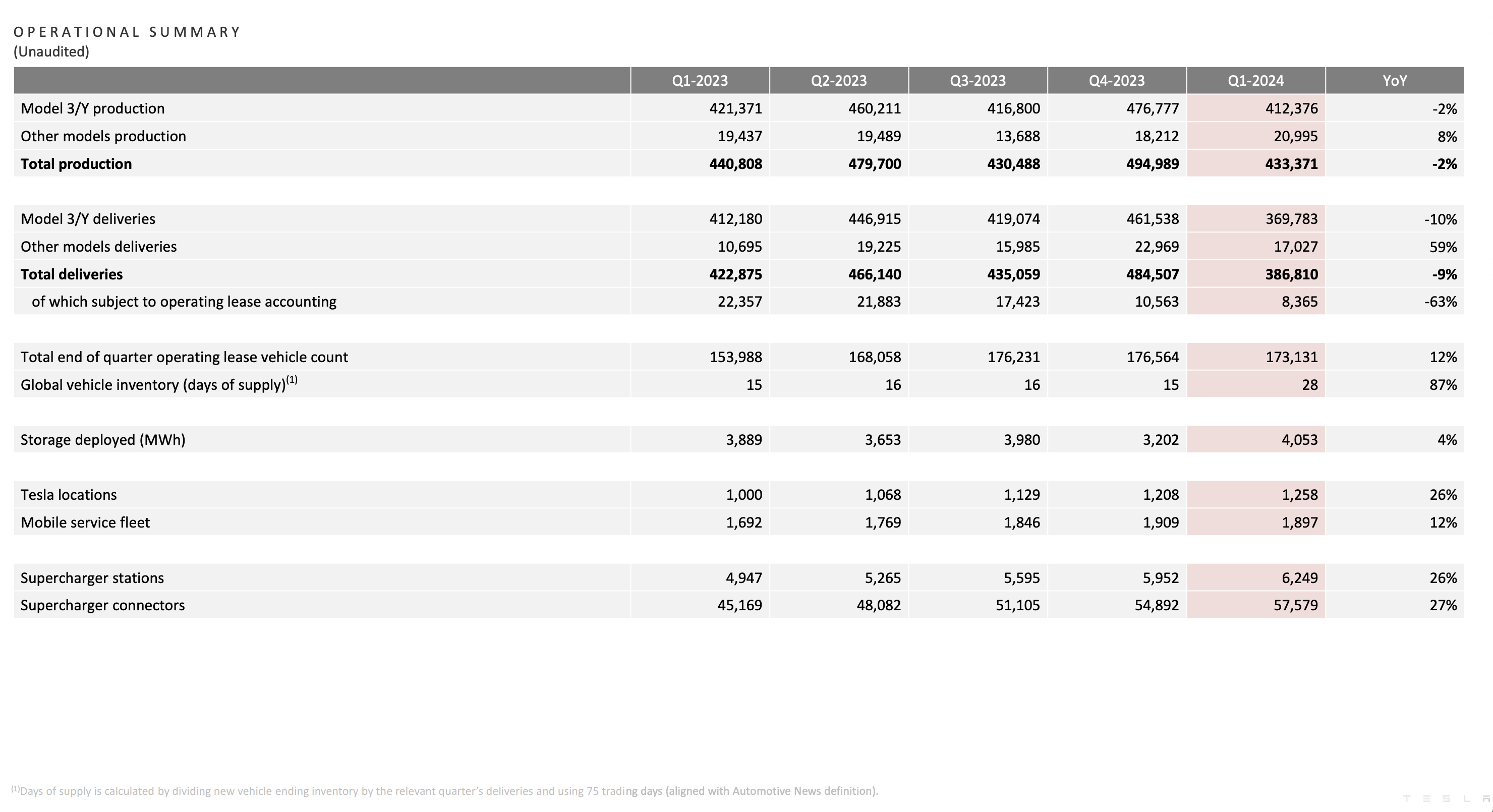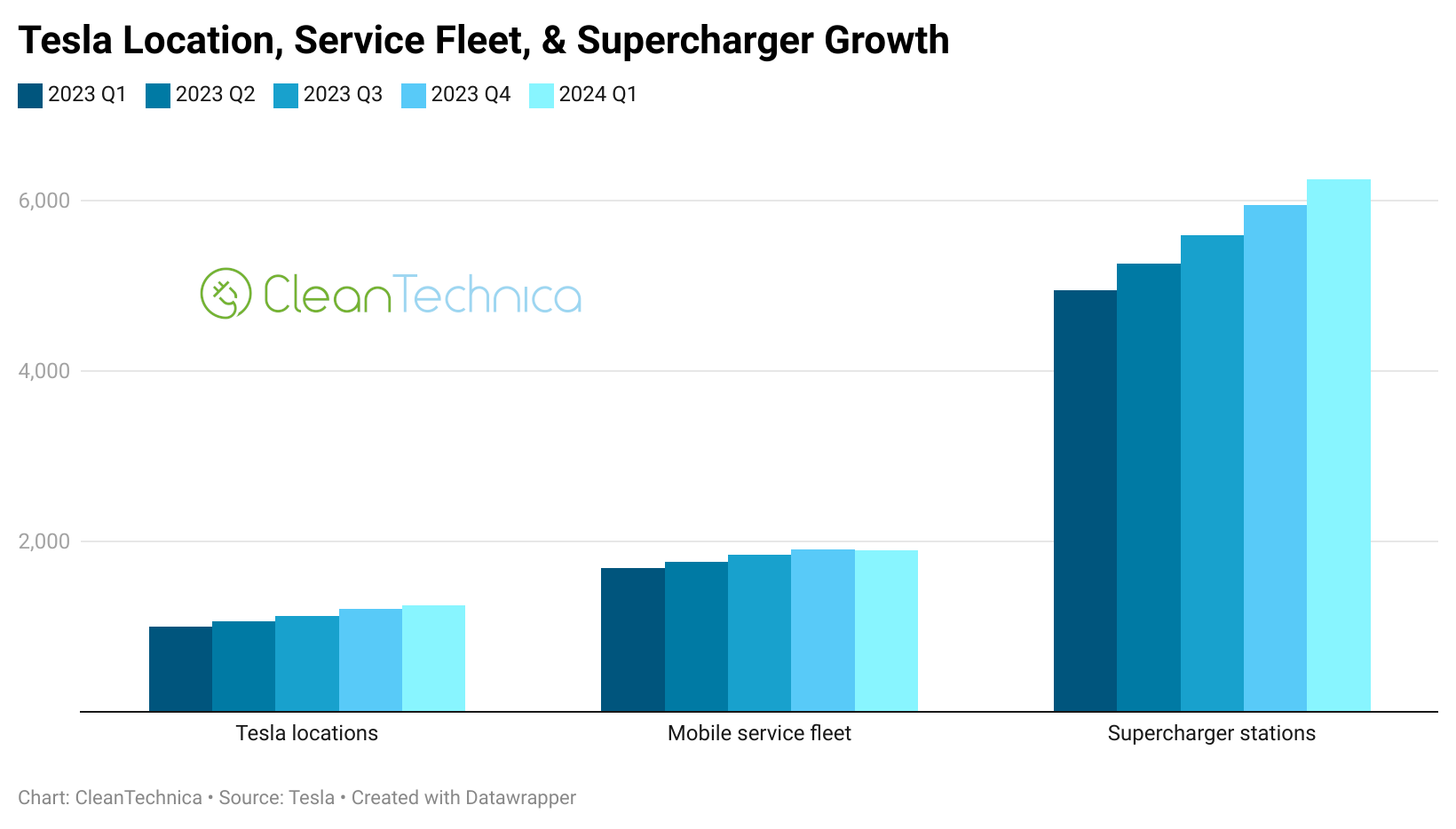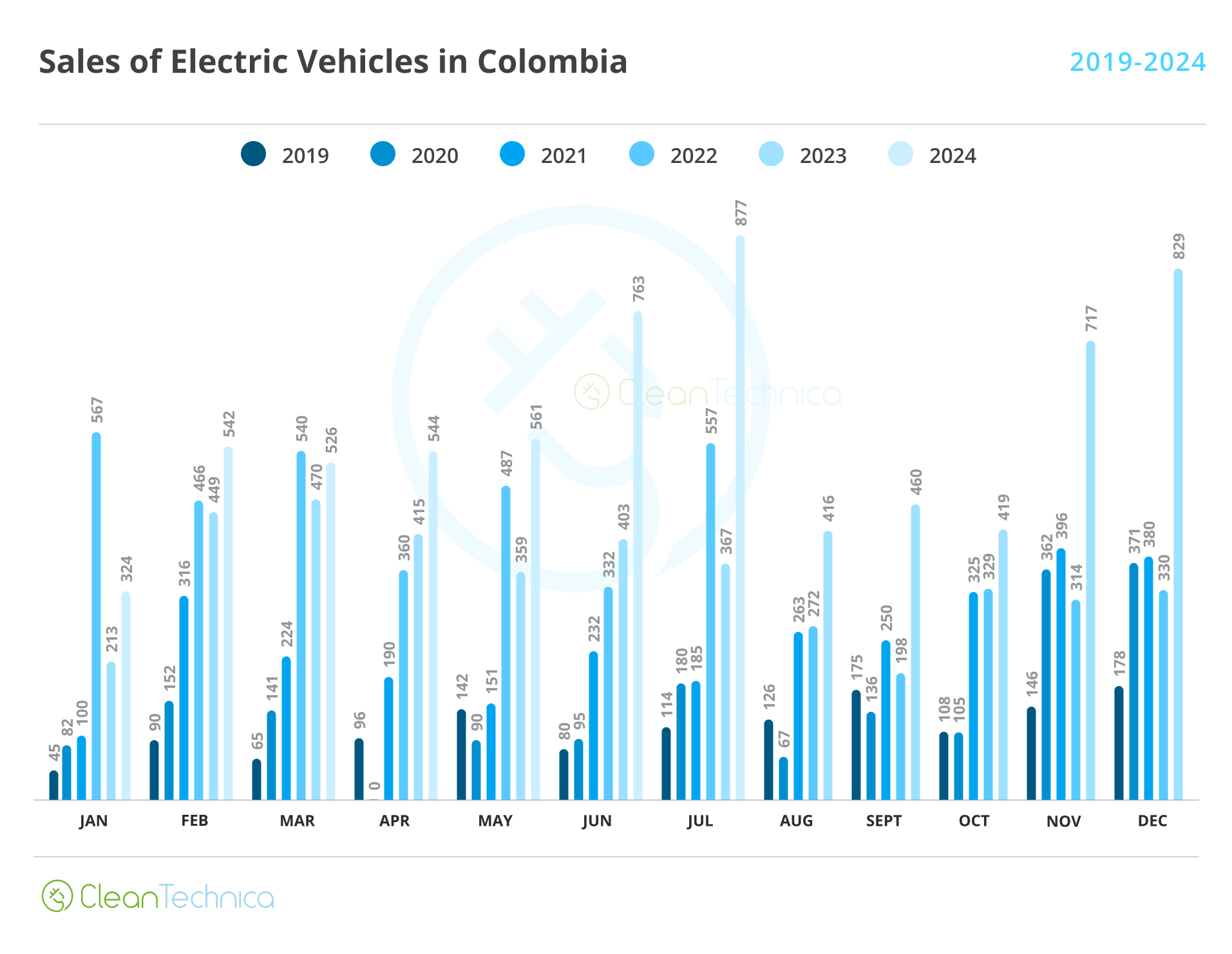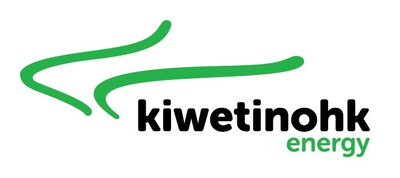Sign up for daily news updates from CleanTechnica on email. Or follow us on Google News!
Tesla provides updates on how much its Supercharger network, service fleet, and stores grow each quarter in its shareholder letter. However, it came to my attention a few times in recent months that a lot of people don’t catch those updates and are concerned about Tesla keeping up with growing demand, particularly for Superchargers as more and more non-Teslas are able to use them.
Note, of course, that these numbers are global. Tesla doesn’t split out US-specific numbers or other regionally specific numbers on these things. Nonetheless, we can presume that growth for each of these matches pretty well with the overall Tesla sales split.
This is how Tesla shows growth (or decline) in Supercharger stations, Supercharger connectors, Tesla locations, and Tesla’s mobile service fleet:
As you can see first there, the priority stats are vehicle production and deliveries. Production of the Model 3 and Model Y (combined) was down 2% in the first quarter, while other models combined for a production increase of 8%. However, because the Model 3 and Model Y dominate Tesla’s vehicle business, overall, Tesla vehicle production was down 2%. As far as deliveries go, Model 3 and Model Y combined for a 10% decline in deliveries, while the Model S, Model X, and Cybertruck combined for a 59% increase in deliveries. All together, deliveries were down 9%. But let’s move on to the focus of this article: Tesla locations, Tesla service, and Tesla Superchargers.
You can see the numbers above, most notably the year-over-year growth figures on the right. As you can see, the number of Tesla locations rose 26% from Q1 2023 to Q1 2024, the number of vehicles in Tesla’s service fleet rose 12% from Q1 2023 to Q1 2024, the number of Tesla Supercharger stations (what a lot of people care most about) rose 26% from Q1 2023 to Q1 2024, and the number of Tesla Supercharger connectors rose 27% from Q1 2023 to Q1 2024. I think that’s very solid growth. Here’s a chart looking at those first three things:
Including Supercharger connectors in that chart would make it very hard to notice changes in the other categories, so I excluded them, but here’s a chart for Supercharger connectors as well as stations:
Frankly, percentage-wise, Tesla’s vehicle fleet did not grow nearly as much as the number of Superchargers, service vehicles, and Tesla locations did. So, that’s a great sign for anyone concerned about ongoing Supercharger and service availability.
What will happen in this quarter (Q2) with Tesla cutting costs so dramatically? Will Supercharger growth, service fleet growth, and location growth all come to a halt as well? Will they plow on as they have been? Something in between?
Have a tip for CleanTechnica? Want to advertise? Want to suggest a guest for our CleanTech Talk podcast? Contact us here.
Latest CleanTechnica.TV Video
CleanTechnica uses affiliate links. See our policy here.








